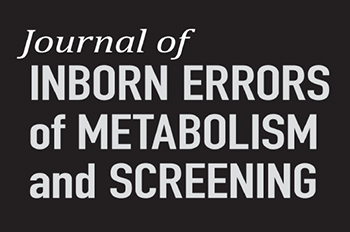Abstract
Medium chain acyl-coA dehydrogenase deficiency (MCADD), the most common fatty acid oxidation disorder, has been regarded as a relatively benign condition with low risk of mortality in patients with a known diagnosis, if adequate caloric intake is met. However, inadequate energy provision, as occurs in eating disorders, significantly amplifies the risk of metabolic decompensation. This case series describes four patients with MCADD and a concomitant eating disorder and aims to raise awareness of the potentially under-recognised coexistence of these conditions. All patients were female with signs of disordered eating in adolescence and young adulthood though latency in diagnosis was apparent. Three of the patients had low body mass index (BMI) and the other was overweight. Metabolic decompensation and hospitalisation occurred in three of four patients secondary to extreme risk-taking behaviour with caloric restriction. The coexistence of MCADD and eating disorders is of significant concern, placing the patient at substantial risk of decompensation in an otherwise relatively stable metabolic condition. Awareness of disordered eating in this population is paramount, as early recognition of signs and symptoms of eating disorders in the MCADD population may facilitate prompt intervention and avoidance of morbidity and potential mortality.
Keywords:
Medium Chain Acyl CoA Dehydrogenase Deficiency; MCADD; Eating disorders; Young adults; Inborn errors of metabolism
